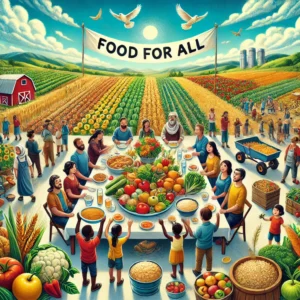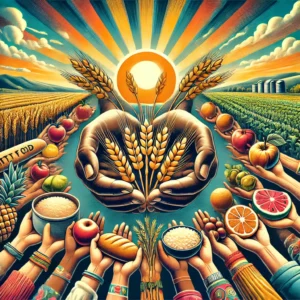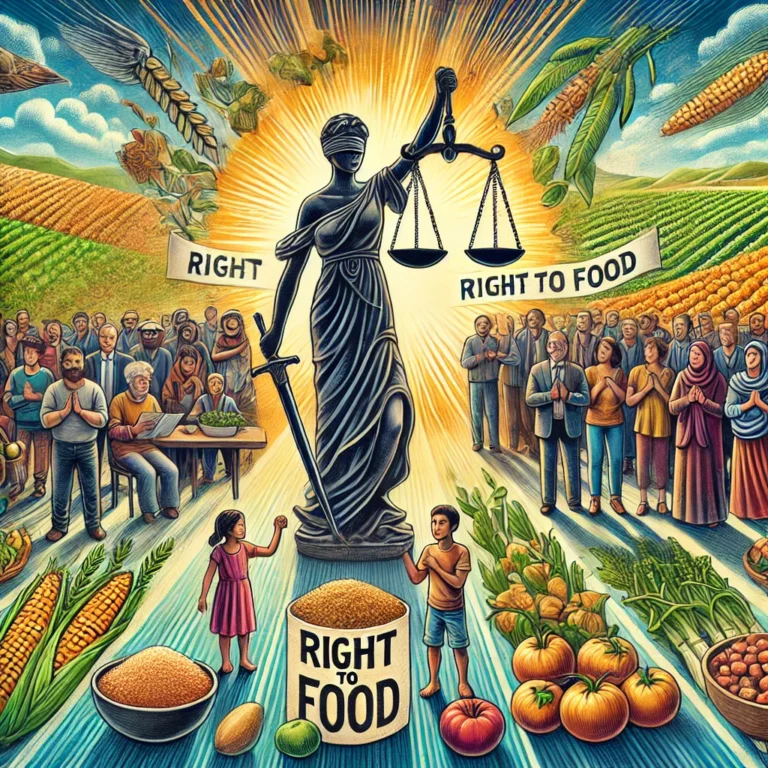In today’s new era of technologically and socially revolutionizing human life, millions of people across the world still face the challenge of how to get enough food to eat. However important it may seem, the issue of having a right to food symbolizes something much more than survival: human dignity, equality, and social justice. Understanding this, most countries and institutions around the world have increasingly demanded that food security should be treated as a fundamental right. Here’s why the right to food must be enshrined as a basic human right in every constitution.
What is a Right to Food?
It means that every person has the right to gain, through independent access or with assistance if appropriate, satisfaction of hunger and safe and nutritious food that is culturally acceptable and physically available in sufficient quantity. The right to food is more than a mere tool to survive; it is about access to food, which should be without discrimination and respect for human dignity.
International institutions regard the right to food as an integral part of the Universal Declaration of Human Rights and the International Covenant on Economic, Social, and Cultural Rights (ICESCR). However, for most countries, it remains in a non-fundamental position.
Why Right to Food Should be Fundamental
1. Food Security as Basic Need
Food is as essential as air and water. Denial of adequate food compromises health, productivity, and human potential. Having food guarantees to strengthen individual well-being, subsequently supporting economic growth and reducing social inequality.
2. Removes Hunger and Malnutrition
Despite all the progress, hunger and malnutrition are still prevalent in all the countries. The worst hit are the children and the women and the marginalized sections of society. It will prompt governments to come out with policies or social safety nets so that hunger eradication schemes and access to nutritious food become integral among people.
3. Eradicates Social Inequalities
Unequal access to food usually portrays a bigger picture of sociological and economic inequalities. This means that putting food within the constitutional rights will ensure that no one – the poor, elderly, or disabled – is left behind. This propels fair provision of resources that function towards human development.
4. Promotes Government Accountability
The right to food would expose governments to the pressure of ensuring food supply distribution, agricultural development schemes, and poverty relief plans, among others. It would push nations to invest more on sustainable agriculture, food security policies, and the resilience of supply chains to avoid depriving its citizens of such a fundamental need.
Case Studies: Countries where the Right to Food is enshrined.
India: The National Food Security Act, NFSA that India enacted in 2013 made access to food a legal right. It has ensured affordable food grains for millions and helped in reducing hunger.
South Africa: Its constitution had established the right to food, compelling the state to ensure every child and needful person is given adequate food.
Brazil: Brazil’s Zero Hunger program, launched with a focus on the right to food, reduced hunger sharply through direct government intervention.
These examples show that political will and commitment can quite effectively solve the problem of hunger.

The Moral and Ethical Imperative
Food access is not an economic issue but a human dignity issue. Without access to food, one cannot think about education, work, nor personal development. It should not be only human morality to deny him this right. The foundational right will instead make food a collective effort of government, organizations, and individuals toward the realization of an inclusive and just society.
Conclusion: A Hunger-Free Future
Food is a universal human need. Today is the time to make it a universal human right. The right to food is now perceived to be a basic fundamental right that will erase immediate problems but also establish long-term solutions for hunger and inequality. It incurs responsibilities on governments to eradicate hunger, improve food systems, and ensure that no one goes to bed hungry. A right to access nutritious food must also be available to everyone; therefore, a base for a world free from hunger and injustice is established.


